“Apex-level tone in a go-anywhere footprint”: Two Notes unveils Opus, a multi-channel amp sim with preamp and power amp Tube-Stage Modeling tech
Opus is the guitar and bass player's Swiss Army Knife for stage and studio, a compact, powerhouse amp-in-a-box that is packed with features and the answer to all your DI prayers

Two Notes Audio Engineering has launched Opus, a compact, pedalboard-friendly multi-channel amp modeller that’s packed with state-of-the-art features for direct recording and stage performance.
It’s described by Two Notes as building upon its ‘C.A.B. lineage’, adding new Tube-Stage Modeling (TSM) technology to its preamp and power amp simulations to shape your electric guitar tone. Guillaume Pille, CEO of Two Notes, said the unit is everything that the company stands for.
“Regardless of whether you’re a pedalboard fanatic or a die-hard amp enthusiast, Opus provides the perfect entry-point into the class-leading Two Notes ecosystem,” Pille said.
The Opus is a guitar amp in box and a whole lot more. As we would expect from a product described by the company as its “masterpiece” it has Two Notes’ onboard DynIR engine, presents players will no shortage of options for digital guitar and bass speaker cabinet simulations.
The DSP power here is the equivalent of 160,000 studio-grade IR files. It’s hard to imagine a cab and mic combination that you can’t digitally access. Choose from eight mics per cabinet, with some 10,000 mic positions available in front or at the back of the cabinet.
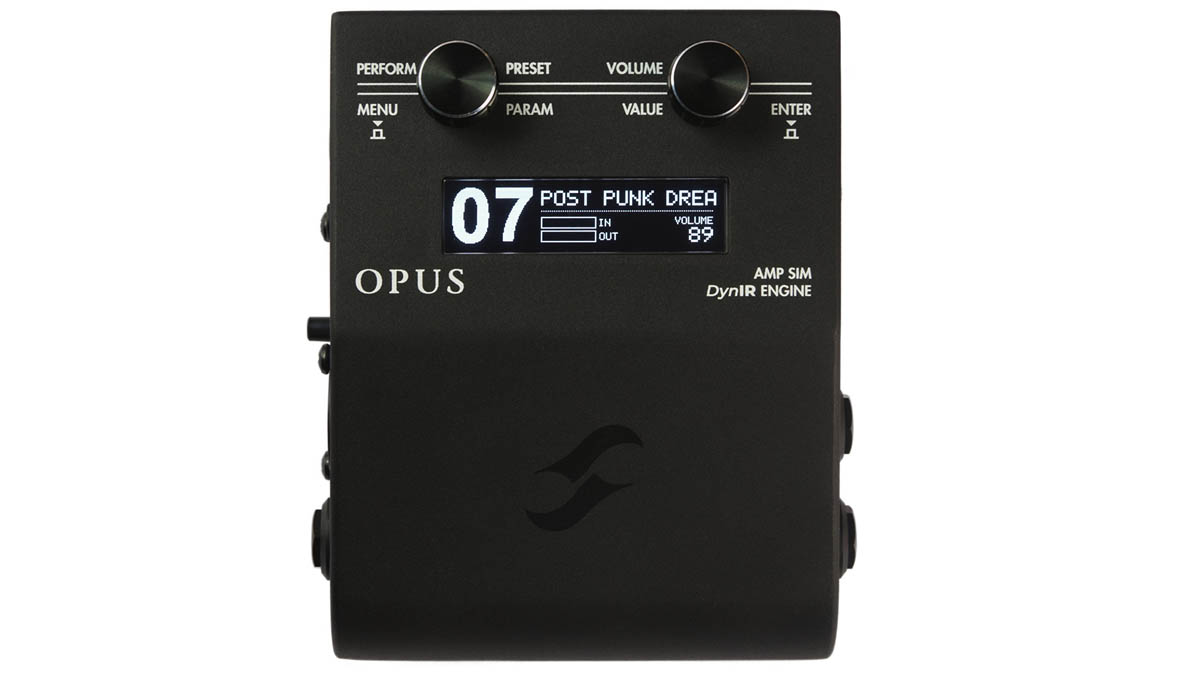
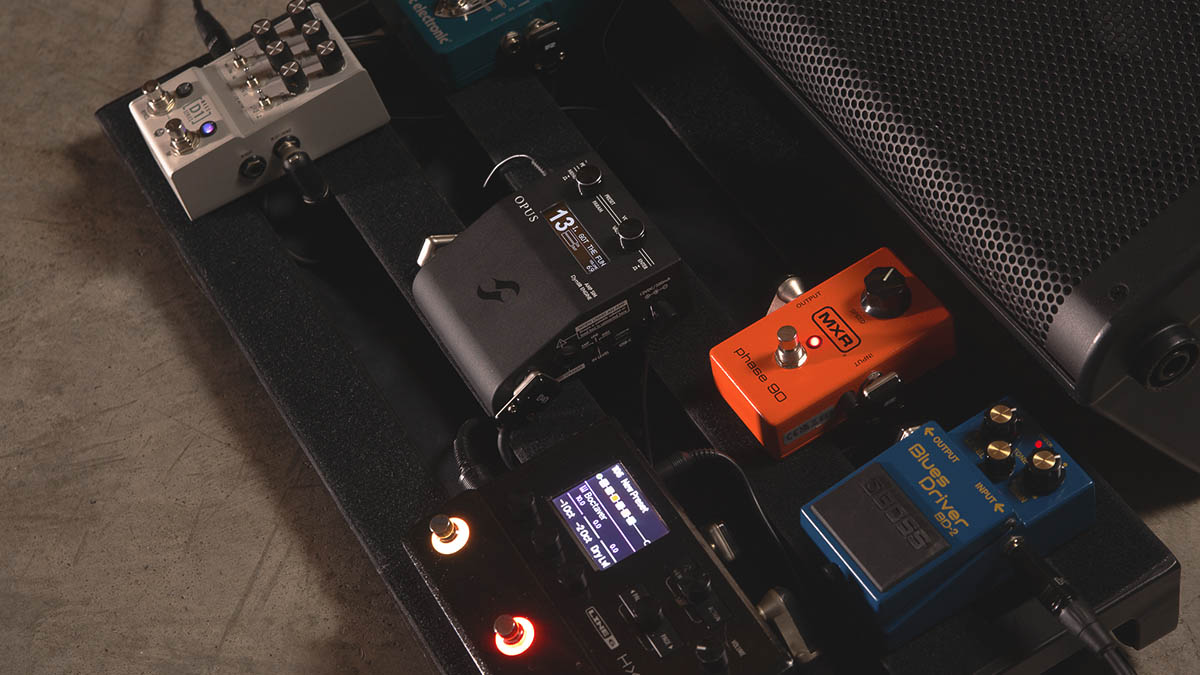
And there are all kinds of ways that you can use this, all kinds of ways you can edit the sounds. It can be hooked up wirelessly to your computer, tablet or smartphone and edited via the Torpedo Remote app. The unit itself has two front-mounted rotary controls and an LED screen for manual editing. It is, of course, MIDI-compatible, too.
The Opus can be be your all-in-one fly rig, mounted on your ‘board and integrated with your effects. You can disengage the power amp sims and run it through your amp’s effects loop, using the TSM preamps to shape your sound. And it has dual-mono outputs so you can record processed and dry signals easily, or run a wet/dry rig when playing live.
Want all the hottest music and gear news, reviews, deals, features and more, direct to your inbox? Sign up here.
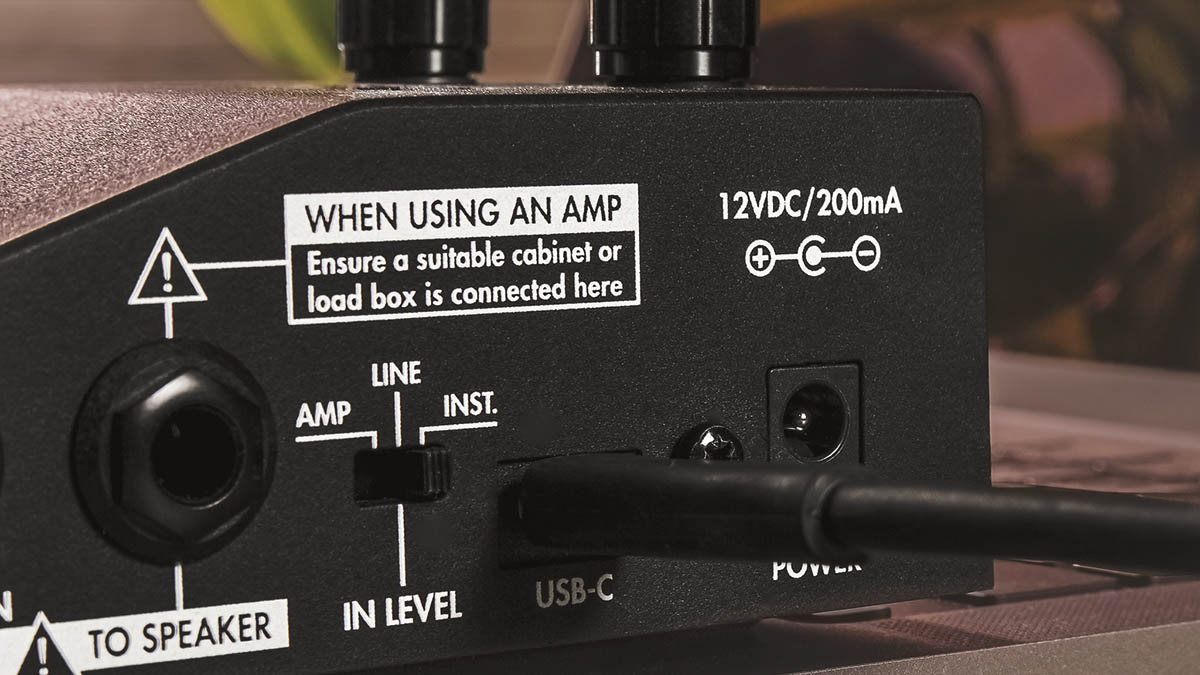
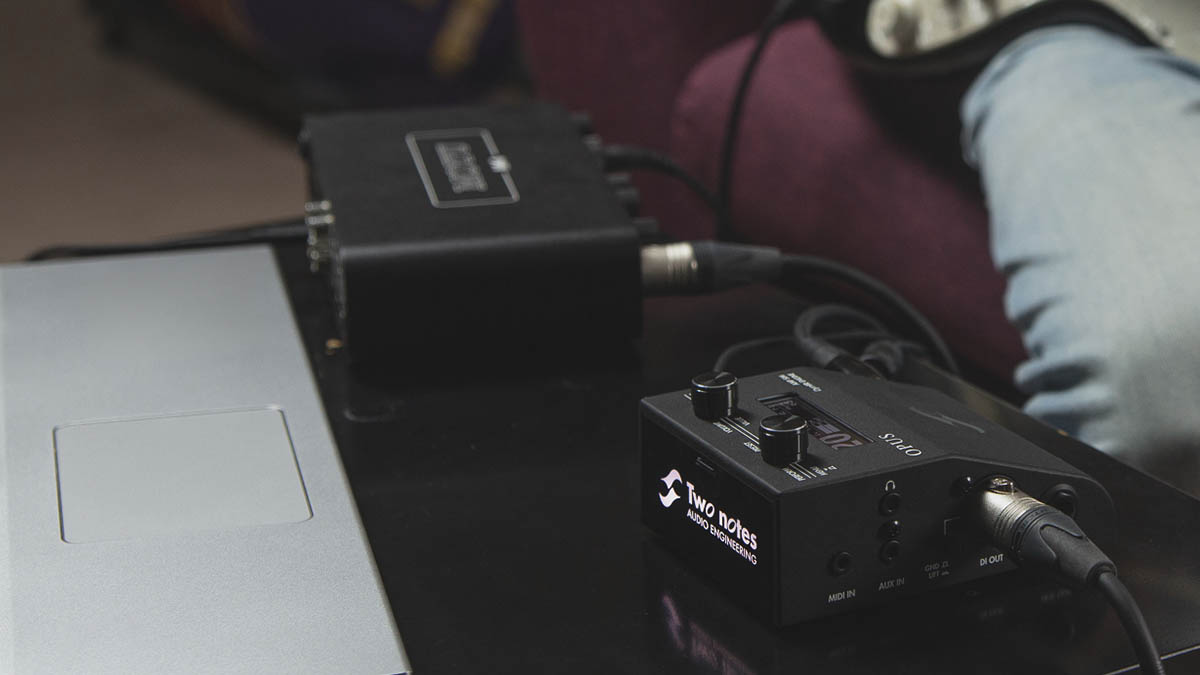
It also ships with onboard effects and tone-sweetening tools. There are 12 types of reverb, from spring and plate to huge cathedral modes and the intriguing Crypt. There are amp EQ options with customisable five-band EQs tuned for both guitar and bass guitar. There is an onboard enhancer.
The unit ships with 32 DynIR virtual cabinets, plus five TSM-designed preamps and various TSM power amp options. The TSM powered preamp and power amp simulations that are the big talking point.
The bundled preamps include Foundry Guitar, Peggy, Albion, Foxy and Nifty50. More TSM preamps are in the works, and will be available via firmware update. In the here and now, however, this handful covers many bases.
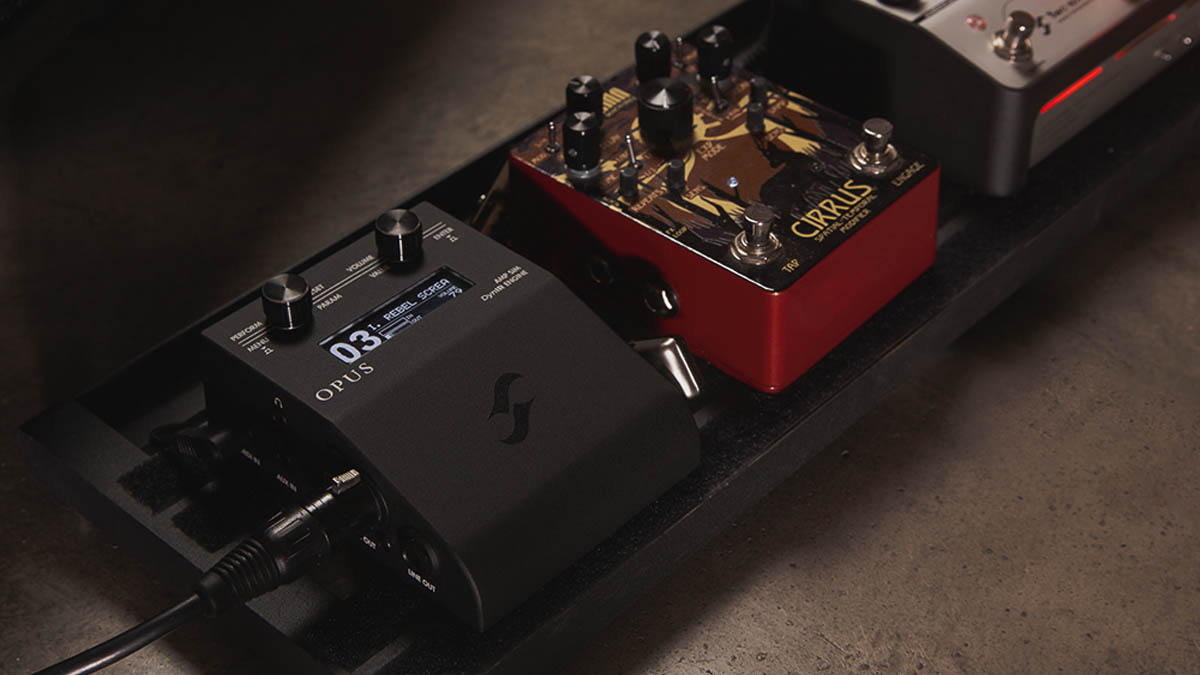
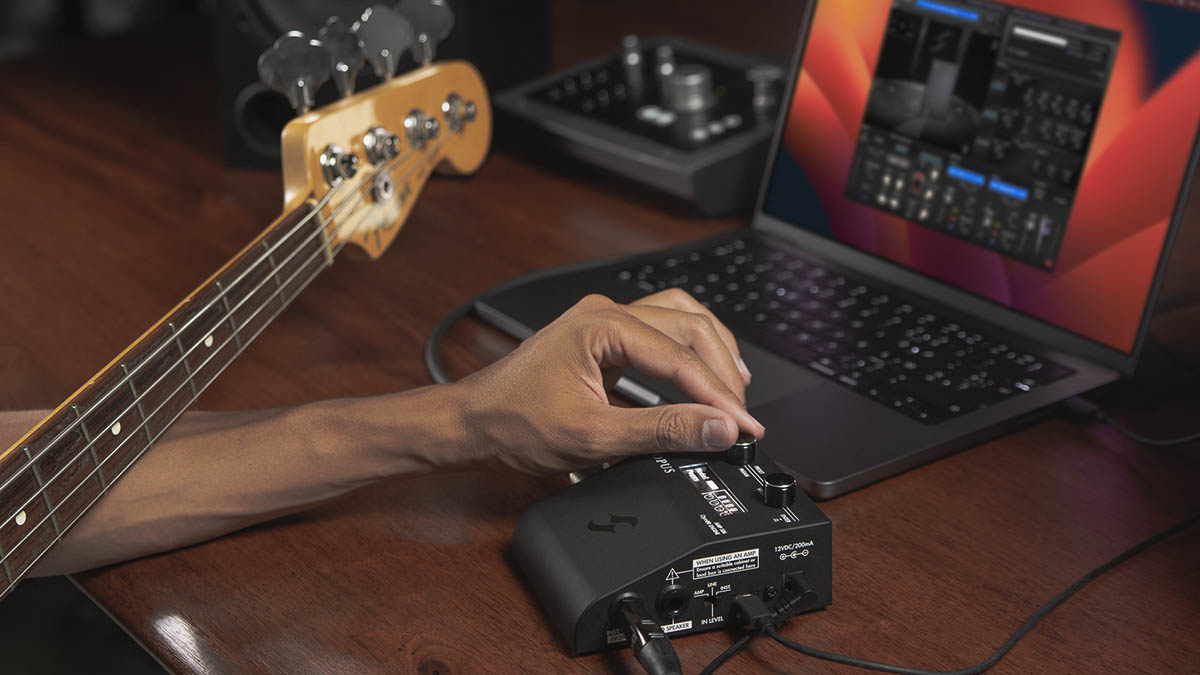
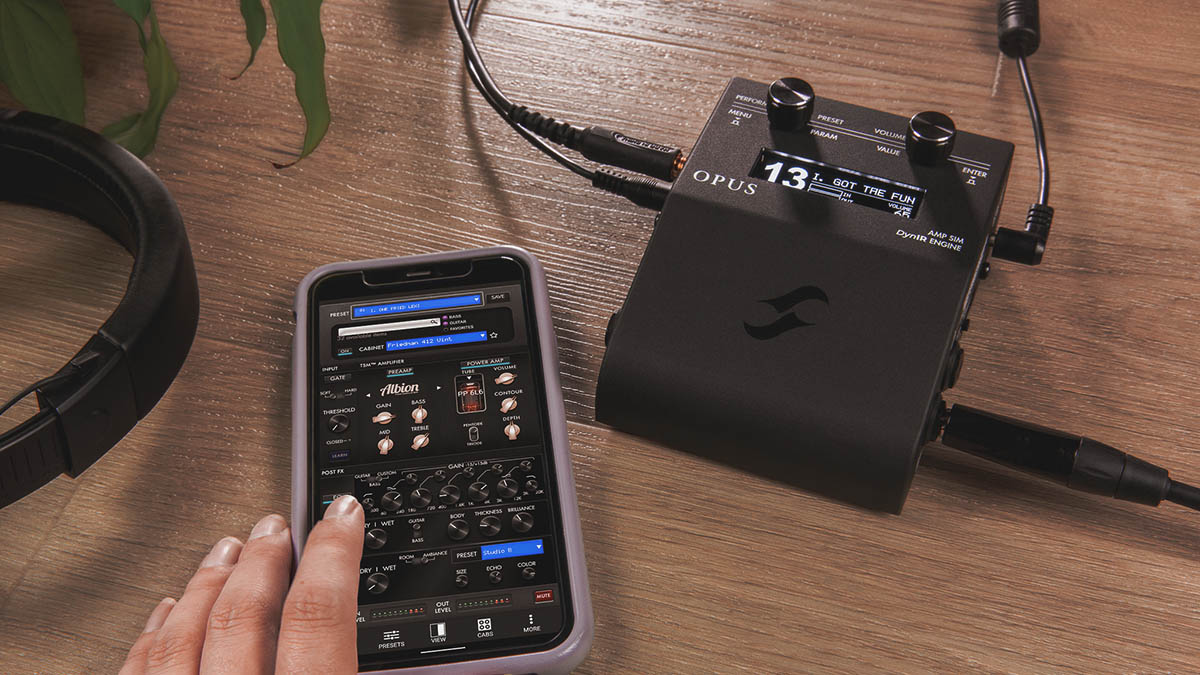
The Foundry TSM preamp is your option for boutique-voiced California-style cleans, and for the sort of high-headroom cleans that make a solid pedalboard platform. Peggy is a bass preamp voiced for “complex harmonic overtones, a warm midrange and oodles of rafter ratllin’ thump”.
Albion, meanwhile, is your setting for classic Brit rock sounds, with ample gain and plenty of personality in the midrange, while Foxy is voiced for “chime, articulation and buttery-smooth presence”, and Nifty50 is your gain platform for metal guitar or ‘80s-style hard rock leads.
Once you’ve dialled in your TSM preamp, you can then shape the power amp response using the same TSM tech, with Two Notes allowing you to choose from 6L6, EL34, EL84 and KT88 power tube emulations and then run them in Class A or Class AB configurations. Et voila, the idea is that your tone will compress, clip and feel just like the real thing.
The Opus is available now and is priced £279 / $299 street. See Two Notes for more details.
Jonathan Horsley has been writing about guitars and guitar culture since 2005, playing them since 1990, and regularly contributes to MusicRadar, Total Guitar and Guitar World. He uses Jazz III nylon picks, 10s during the week, 9s at the weekend, and shamefully still struggles with rhythm figure one of Van Halen’s Panama.
